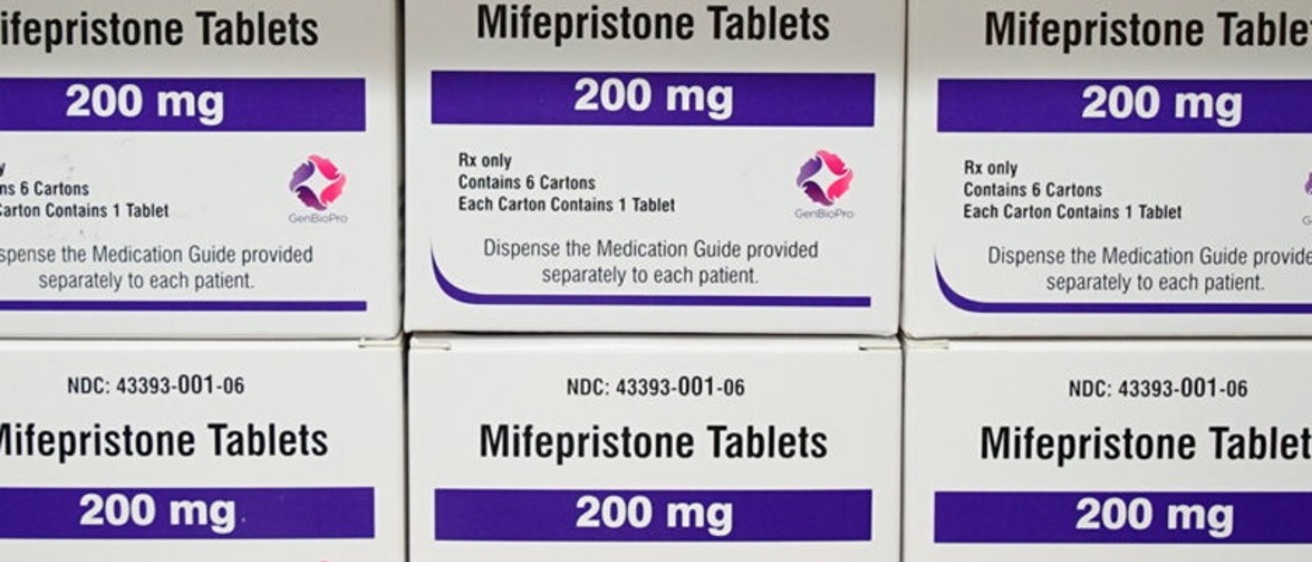In 1873, Congress passed the Comstock Act, a law aimed at prohibiting the distribution of “obscene literature” or any “article, instrument, substance, drug, medicine, or thing” intended to “produc[e] [an] abortion” or “any indecent or moral purpose” through the United States Postal System.[1] The Comstock Act granted powers for government official to search and confiscate private mail, destroy intercepted “obscene” material, and prosecute writers and booksellers distributing the material.[2] The clauses specifically prohibiting contraception mailings were removed in 1971, and the remainder of the law laid dormant during the 50-year period that Roe v. Wade was precedent.[3] The remainder of the law was never repealed.[4]
On April 7, a federal judge from the Northern District of Texas, Judge Matthew Kacsmaryk, issued an injunction ordering the FDA to rollback its approval of an abortion drug, mifepristone. His injunction may lead to the national resurrection the remainder of the Comstock Act.[5]
Currently, mifepristone is one of two drugs used for medically induced abortions and managing the aftermath of natural miscarriages.[6] Unlike miscarriage management, medication for a medically induced abortion is prescribed online and mailed to patients through the U.S. Postal System.[7] This method of receiving medication for abortion has become increasingly common after the Supreme Court overturned Roe v. Wade last June because it allows patients seeking an abortion to obtain the medication in a state that has otherwise outlawed the medical service entirely.[8]
Currently, 12 states have totally banned abortions, another 12 have heavy restrictions, and four states have no protections in place.[9] Many of the states with protections for abortion and expanded access are already dealing with a higher volume of patients seeking an abortion.[10] Around two percent of abortion clinics in the country only offer a medication option, and do not have a surgical option.[11] According to the Guttmacher Institute, an abortion-rights think tank, a nationwide ban of medication abortions could impede roughly 2.4 million people from gaining access to that care.[12]
In his ruling, Judge Kacsmaryk found that mifepristone is unsafe because it was approved too quickly in September of 2000 for “political” reasons.[13] Further, he reasoned, the Comstock Act “plainly forecloses mail-order abortion in the present.”[14] The injunction is not set to go into effect until Friday, April 14, to allow time for an appeal to be filed. The Justice Department appealed the case to the 5th Circuit Court of Appeals the same day the injunction issued.[15]
Complicating the matter further is a conflicting order from a federal judge from the Eastern District of Washington. Judge Thomas Rice’s order, issued one hour after the Texas injuction, ordered the FDA not to rollback its approval of mifepristone.[16] Judge Rice found that the restrictions “burdensome” and “unnecessary,” and that the FDA had appropriately approved the drug as safe and effective.[17]
The matter is likely headed to the Supreme Court for a resolution where it may rest on the application of the Comstock Act, as Judge Kacsmaryk argues. Judge Kacsmaryk’s reliance on the text of the Comstock Act appeals to the textualist judges of the Supreme Court, the results could go further than banning the abortion medication. In theory, all instruments and medication used in any abortion procedure, even in states where such procedures are legal, must go through a mail system or express service before reaching its destination. A strict application of the Comstock Act could render both surgical and medical abortions illegal nationwide, including in states with abortion protections.
Photo courtesy of the ACLU
[1] The Comstock Act, 18 U.S.C. § 1461 (1873).
[2] The Comstock Act, 18 U.S.C. § 1461 (1873) (amended 1971).
[3] Id.
[4] Michelle Goldberg, The Hideous Resurrection of the Comstock Act, N.Y. Times (April 8, 2023), https://www.nytimes.com/2023/04/08/opinion/comstock-laws-abortion-texas.html.
[5] Id.
[6] Oriana González, Shawna Chen, How Abortion Pills Work and Why They’re in the Spotlight, Axios (April 8, 2023),https://www.axios.com/2023/02/22/abortion-pills-supreme-court-roe.
[7] Id.
[8] Alice Miranda Ollstein, Texas Judge Halts FDA Approval of Abortion Pill, Politico (April 7, 2023), https://www.politico.com/news/2023/04/07/texas-judge-halts-fda-approval-of-abortion-pill-00091096#:~:text=A%20Texas%20federal%20judge%20ruled,the%20pills%20across%20the%20country.
[9] Center for Reproductive Rights; After Roe Fell: Abortion Laws by State, Center for Reproductive Rights. https://reproductiverights.org/maps/abortion-laws-by-state.
[10] Jesse Philbin, et. al, 10 U.S. States Would Be Hit Especially Hard by a Nationwide Ban on Medication Abortion Using Mifepristone, Guttmacher Institute (February 7, 2023) https://www.guttmacher.org/2023/02/10-us-states-would-be-hit-especially-hard-nationwide-ban-medication-abortion-using.
[11] Id.
[12] Id.
[13] Read the Court Decision Invalidating F.D.A. Approval of Mifepristone, N.Y. Times (April 7, 2023), https://int.nyt.com/data/documenttools/court-decision-invalidating-approval-of-mifepristone/0bb045930a649567/full.pdf.
[14] Id.
[15] Alice Miranda Ollstein, Texas Judge Halts FDA Approval of Abortion Pill, Politico (April 7, 2023), https://www.politico.com/news/2023/04/07/texas-judge-halts-fda-approval-of-abortion-pill-00091096#:~:text=A%20Texas%20federal%20judge%20ruled,the%20pills%20across%20the%20country.
[16] Oriana González, Washington Judge Orders FDA to Not Suspend Abortion Pill Approval, Axios (April 7, 2023)
https://www.axios.com/2023/04/08/washington-judge-abortion-pills-texas.
[17] Id.
